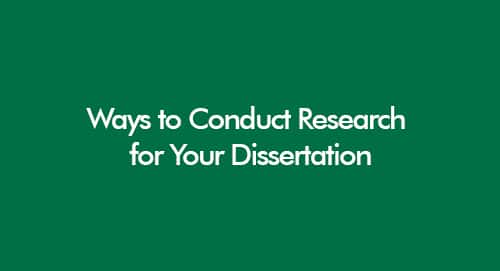
How to Write a Reference List? Practical Tips and Guidelines
October 10, 2022
How to Write a Self-Reflection? Practical Tips for Success
October 12, 2022Data analysis is the process of systematically examining and interpreting data in order to gain insights and draw conclusions. It involves using statistical and analytical methods to transform raw data into meaningful information that can be used to inform decision-making, problem-solving, and research.
Discover New Research Topics Here
Navigate Dissertation Examples for New Insights
The following guide will help you become an expert in data analysis and how to interpret result findings:
Types of Data Analysis Techniques
There are several types of data analysis techniques:
1- Descriptive Statistics
Descriptive statistics involves summarizing and describing the characteristics of a dataset. This includes measures of central tendency (such as mean, median, and mode) and measures of variability (such as range, standard deviation, and variance).
2- Inferential Statistics
Inferential statistics involves using statistical techniques to make inferences or predictions about a population based on a sample of data. This includes hypothesis testing, confidence intervals, and regression analysis.
3- Qualitative Data Analysis
Qualitative data analysis involves analyzing non-numerical data, such as text or images. This includes methods such as content analysis, thematic analysis, discourse analysis, and grounded theory.
4- Quantitative Data Analysis
Quantitative data analysis involves analyzing numerical data. This includes methods such as correlation, regression, and factor analysis.
5- Data Mining
Data mining involves using statistical and computational techniques to discover patterns and relationships in large datasets.
6- Text Mining
Text mining involves using computational methods to analyze large amounts of text data, such as social media posts or news articles.
7- Spatial Analysis
Spatial analysis involves analyzing data that is linked to a particular location or geography. This includes methods such as geographic information systems and spatial statistics.
Learn How to Write a Unique Dissertation Title: Tips and Examples
The choice of data analysis method will depend on the research question being asked, the type of data being analyzed, and the research design. Choosing the appropriate data analysis method is important to ensure accurate, reliable, and valid results.
What Should be Included in the Data Analysis Section?
Writing the data analysis section is the most important part. Before getting into this section, reiterating the purpose and goals of your research paper can help your readers refocus on the essential parts of your academic piece. That is an excellent place to start in your findings section. Your readers have already read your research paper's introduction, literature review, and research methods; it is now time and appropriate to draw their attention back to the purpose. The goal of your paper may be restated in a single brief paragraph. The following steps will help greatly:
1- Organize Your Data
Before you start writing, it's important to ensure that your data is organized and ready for analysis. Make sure you have all the necessary data and that it is in a format that can be easily analyzed.
2- Define Your Research Question
The data analysis section should be focused on answering your research question. Be clear about what you are trying to answer and how you plan to do it.
3- Choose the Appropriate Statistical Methods
Depending on the type of data you have collected and the research question you are trying to answer, you will need to choose appropriate statistical methods. These may include descriptive statistics, inferential statistics, regression analysis, or other methods.
4- Conduct the Analysis
Once you have chosen the appropriate statistical methods, it's time to conduct the analysis. Be sure to follow best practices for data analysis, such as checking for outliers and conducting sensitivity analyses.
5- Organize Your Results
After conducting the analysis, organize your results in a clear and logical manner. This may include tables, charts, and graphs to help illustrate your findings.
6- Interpret Your Results
Once you have organized your results, it's time to interpret them. Explain what your results mean in the context of your research question and how they contribute to the existing literature.
7- Discuss Limitations and Future Directions
Finally, be sure to discuss any limitations of your study and identify areas for future research.
Find Out How to Write a Strong Research Hypothesis
It is worth noting that the data analysis section should be clear, concise, and focused on answering your research question. It's important to be transparent about your methods and provide enough detail so others can replicate your analysis.
The Standard Approach to the Data Analysis
It's crucial for a successful scholar to know how to write a results section and properly structure it. There are two ways of summarizing and structuring the results for the majority of research paper’s formats.
1- Begin with a Clear Research Question
The data analysis section should be focused on answering a clear research question or set of research questions. Make sure that the research question is well-defined and that the data analysis is directly tied to answering that question.
2- Choose Appropriate Statistical Methods
The appropriate statistical methods will depend on the type of data being analyzed and the research question being asked. Be sure to choose appropriate methods for analyzing both quantitative and qualitative data.
3- Follow Best Data Cleaning and Preparation Practices
Before conducting any analysis, it's important to ensure that the data is clean and ready for analysis. This includes checking for missing data, outliers, and other issues that may affect the analysis.
4- Use Clear and Concise Language
The data analysis section should be written in clear and concise language that is easy to understand. Avoid using jargon or technical terms that may be unfamiliar to the reader.
5- Use Tables and Graphs to Illustrate Key Findings
Tables and graphs can be useful for illustrating key findings and making the data analysis section more accessible to readers.
6- Discuss Limitations and Potential Sources of Bias
It's important to be transparent about any limitations of the study and potential sources of bias that may affect the analysis.
7- Provide Enough Detail for Replication
Finally, be sure to provide enough detail about the data analysis methods so that others can replicate the analysis. This includes providing code and data files where appropriate.
Get Our State-of-the-Art Analysis Services
Explore Conclusion Writing Examples Here
Important Elements for Data Analysis and Findings
Keep these factors in mind to ensure that your study is well-structured and organized:
- To help your readers concentrate on the main points of your academic work, begin your study findings section by restating your research's objective.
- Include dependable, useful tables, figures, and charts that help to summarise your findings.
- Make sure to provide specifics on your data interpretation, analysis, and statistically significant tests.
- Report the statistically insignificant study results to support the legitimacy of your academic essay.
- When describing your study findings, avoid using verbiage language and keep your report as brief as possible.
- Include a summary of the main findings of your study in your section's conclusion.
Things to Avoid in the Result Section
Avoid performing the following while writing the results section:
1. Don't Interpret the Data
The results section of an academic paper is where you report the findings of your study. It is crucial to note that you should not interpret the data in this section; rather, you should simply report what you found. Any interpretation of the data should be made in the discussion section.
2. Don't Discuss the Implications of the Results
Similarly, you should not discuss the implications of the results in the results section. Implications are what the results mean concerning other things, which should be addressed in the discussion section.
3. Don't Discuss the Limitations of the Study
The limitations of a study are factors that may have affected the study's findings. For example, if a study was only conducted on a small sample of people, this could be considered a limitation. Limitations should not be discussed in the results section; instead, they should be addressed in the discussion section.
4. Don't Make Recommendations
Recommendations are suggestions for future action and should not be made in the results section. Recommendations can be made in the discussion section or a separate conclusion section.
5. Don't Present New Information
The results section is not the place to present new information; instead, it is only for reporting what was found in the study. Any further information should be shown in the discussion section.
6. Don't Use First-Person Pronouns
First-person pronouns (e.g., I, we) should not be used in research papers as they make it sound like you are biased. Instead, use third-person pronouns (e.g., he, she, it, and they).
7. Don't Make Conclusions
As with interpretation, conclusions about the data should be reserved for the discussion section. The results section should only report what was found, not what it all means.
8. Don't Use Jargon
Jargon is the specialized terminology used by people in a particular profession or group and can be hard to comprehend for others. Therefore, it is essential to avoid jargon in scientific writing so that a wider audience can understand the paper.
9. Don't Use Abbreviations Without Defining them First
Abbreviations should be avoided in scientific writing unless they are essential, and if they are used, they should be defined before they are used so that readers will know what they stand for.
10. Don't Include Raw Data in the Results Section.
The Results section should only include information that has been analyzed and interpreted. The article's main body does not necessarily need to contain raw data; it should be put in an appendix or other additional material so that readers may consult it if they want.
Conclusion
The Results section of your research paper displays the most important data as your study's data output represents it. By using clear language and a consistent writing style, as well as by stressing and describing the most important findings of their investigations, authors may increase the impact and effectiveness of their research articles. I hope now you have all the tools regarding how to write a results section. We are available to assist; message us, and we will get back to you.
Get 3+ Free Dissertation Topics within 24 hours?



























